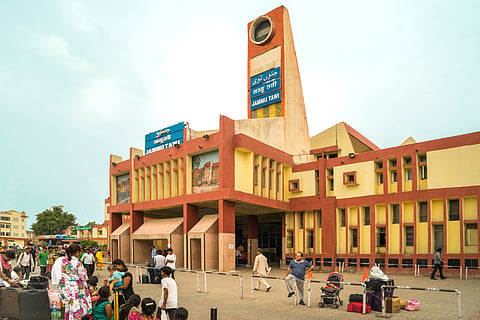
- Destinations
- Experiences
- Stay
- What's new
- Celebrating People
- Responsible Tourism
- CampaignsCampaigns
- SubscribeSubscribe
- Buy Now

A long-awaited train service connecting Jammu and the Kashmir Valley is set to commence soon, the Minister of Railways Ashwini Vaishnaw announced on January 23. The landmark project—a feat of engineering brilliance—has overcome immense geographical and climatic challenges to turn a national dream into reality.
During an inspection of the new Amrit Bharat train coaches and other railway projects at the Integral Coach Factory (ICF) in Chennai, Vaishnaw expressed pride in the completion of the ambitious endeavour, saying, “The project presented immense complexity due to its terrain, but the determination and expertise of the engineering teams have made it possible.”
The 111-kilometre railway route includes 97 kilometres of tunnels and six kilometres of bridges. Vaishnaw noted that the challenging topography and extreme weather conditions posed significant obstacles during construction. However, the work has now been completed, and the Commissioner of Railway Safety (CRS) has conducted an inspection.
The railway ministry has also introduced a specially designed Vande Bharat train to operate on this route. The train is tailored to withstand the region's harsh winters, where temperatures can plunge to -10°C or even -20°C. Key enhancements include silicon heating pads to prevent the freezing of water tanks, heated plumbing pipelines and triple-layered windscreens in the pilot cabin equipped with heating filaments to maintain visibility during snowfall.
The train also boasts washroom heaters and climate-controlled compartments that maintain a comfortable interior temperature even when external temperatures plunge to -30°C. Other notable features include foldable tables, rotating chair car seats, and all standard amenities such as air-conditioned coaches, automatic plug doors and mobile charging points.
As per reports, the Katra-Banihal section of the Udhampur-Srinagar-Baramula Rail Link (USBRL) underwent a successful speed trial during the CRS inspection on January 8 and 9. This section, a crucial link bridging Jammu and the Kashmir Valley, includes remarkable engineering achievements such as the Chenab Bridge, the world's highest railway bridge. The line also features cutting-edge tunnels and advanced safety measures, demonstrating the ingenuity and resilience of Indian engineering.
The USBRL project represents a significant step forward in connecting the remote regions of Jammu and Kashmir with the rest of the country, fostering economic development, tourism and better connectivity.
(With inputs from multiple news reports)
